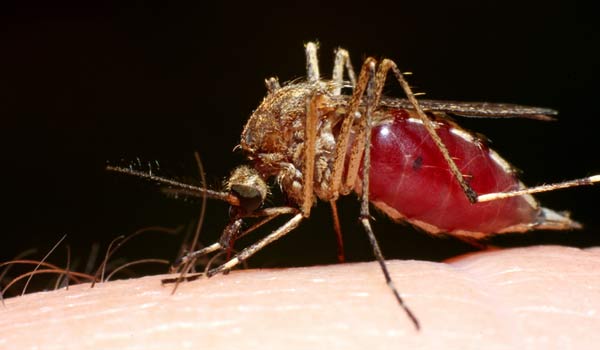West Nile Cases Approach 2,000

There have now been 1,993 reported cases of West Nile virus infections in the United States this year, researchers at the Centers for Disease Control and Prevention said today (Sept. 5). Eighty-seven people have died from the disease.
The number of cases, reported through the first week in September, keeps the U.S. on track for its highest number of West Nile cases since the mosquito-borne virus was first seen in the country in 1999, said Dr. Lyle Petersen, director of the CDC's Division of Vector-Borne Infectious Diseases.
Historically, West Nile cases tend to peak in August, so the U.S. may be past this year's peak of the disease. But cases are expected to continue to be reported through October, particularly in the northern states, which generally lag behind the South in terms of when the disease peaks due to their climates, Peterson said.
Texas remains the state hardest hit, with 1,013 cases and 40 deaths, said Dr. David Lakey, commissioner of the Texas Department of State Health Services. However, recent data included "promising indicators" that some regions in northern Texas are past the peak of the disease's grip, Lakey said. Testing of mosquito pools suggests the percentage of insects carrying the virus is now declining.
Of the cases reported nationwide, 1,069 are people who developed the severe, neuroinvasive form of the disease, which affects the nervous system. Other cases involve what doctors call West Nile fever, a condition that can cause fever, headache, body aches, nausea, vomiting.
Most cases of West Nile infection go unreported, the CDC has said. About 80 percent of infected people experience no symptoms.
The reason for this year's record pace is not exactly known — an outbreak's severity depends on many factors, Petersen said."Mosquito-borne outbreaks are difficult to predict," he said.
Get the world’s most fascinating discoveries delivered straight to your inbox.
However, the recent heat waves may have played a role, Petersen said. "We know that West Nile virus outbreaks tend to occur when the temperature is above normal, and of course this year's heat wave was record-setting," he said. With warmer temperatures, the levels of virus in mosquitos tend to rise, making them more infectious, and heat also can affect the course of mosquitos' life cycles, he said.
However, he noted, many regions of the country have seen record heat without seeing an unusual number of West Nile cases.
Pass it on: The U.S. remains on a record pace for West Nile disease this year, with cases expected to rise in the northern states.
This story was provided by MyHealthNewsDaily, a sister site to LiveScience. Follow MyHealthNewsDaily on Twitter @MyHealth_MHND. We're also on Facebook & Google+.



